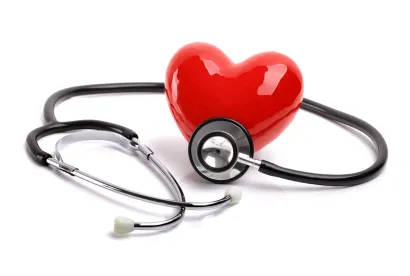An estimated 350,000 out-of-hospital cardiac arrest deaths occur each year in the U.S. Approximately 10% of those who experience out-of-hospital cardiac events survive. Use of automated external defibrillators (AED), however, can improve survival rates dramatically when defibrillation is provided within five minutes of arrest. AEDs are often found in office complexes, shopping malls, sports arenas, airports, doctors’ offices, and a variety of other public and private sites. Although formal training in the use of AEDs is not required, AED and CPR certifications are recommended by the American Heart Association and other public health organizations. With training, individuals gain confidence and familiarity in their ability to recognize the signs of sudden cardiac arrest, safely operate the device, activate the local emergency medical services (EMS), and perform CPR.
As soon as the AED is applied and turned on by the operator, the device begins recording information about the patient, including cardiac rhythm, any defibrillations delivered, and information about CPR performed. The AED then provides audible instructions to prompt the operator through the appropriate steps of defibrillation and resuscitation. Information identifying the patient, if known, can be entered into the event data. When EMS personnel arrive, they document any bystander interventions that occurred prior to their arrival, including use of an AED.
The data stored by the AED may be critical to proper diagnosis and treatment. Once the patient is shocked, resuscitated, and transported to the hospital, vital statistics and other data collected from an AED can be shared with hospital personnel to give them a better understanding of the patient’s emergent situation. Methods of transmitting or downloading data from the device vary by AED manufacturer and include scanning a QR code or copying data to a portable USB. Recipients of the data may need proprietary software or connection tools to download the event data into a hospital records system.
Besides providing medical doctors with valuable insight into a patient’s medical condition, AED data can also assist attorneys evaluate the health histories of their clients or other parties. To ensure that AED data are produced, discovery requests directed at other parties, EMS providers, or medical facilities should be broadly written to include requests for data obtained from an AED, including cardiac rhythm tracings and any other recorded information. At a hospital or physician’s office, AED data would likely be posted to the patient’s record in a manner similar to records obtained from a prior treating hospital or another physician’s office.
Besides providing medical doctors with valuable insight into a patient’s medical condition, AED data can also assist attorneys evaluate the health histories of their clients or other parties.
The use of AEDs also raises liability concerns for operators. Trained and licensed medical personnel who operate AEDs, consistent with the applicable standard of care, are shielded from liability. Liability of lay operators, who are not trained or licensed, can vary from state to state, but, in general, laypersons will be shielded, so long as they act in good faith and do not commit gross negligence. For example, per South Carolina Code § 44-76-40:
(1) Any person or entity acting in good faith and gratuitously shall be immune from civil liability for the application of an AED unless the person was grossly negligent in the application. (2) Any designated AED users meeting the requirements of Section 44-76-30(1) and acting according to the required training shall be immune from civil liability for the application of an AED unless the application was grossly negligent.





 />i
/>i
